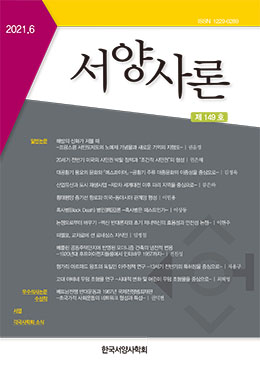본 논문은 헝가리의 아르파드 왕조가 13세기 전반기에 발행한 특허장에 대한 분석을 통해서 중세 헝가리와 독일 간의 이주 문제를 가해와 피해의 이분법적 구분을 넘어서 새로운 관점에서 접근하고자 한다. 독일 역사학계에서 중세 독일의 동방이주는 식민운동이자 동유럽의 독일화로 이해되었던 반면에 동유럽의 학자들은 이를 제국주의적 침탈로 규정하면서 반독일적 해석이 지배적이었다. 13세기 전반기의 특허장은 이주 수용국의 계획적이고 선별적인 이주정책을 고찰할 수 있는 중요한 사료로서, 이주민의 이주가 헝가리 왕실의 경제적 이득 이외에 지방 세력에 대한 견제와 함께 왕권강화를 꾀하는 정책의 일환이었음을 보여준다.
이주민 특허장의 하사 지역이 왕국의 중심부가 아니라 주변부였다는 사실은 국경지대의 방위가 이주정책의 또 다른 목적이었음을 시사한다. 다양한 자치권과 경제적 면책 특권을 보장한 특허장은 왕과 이주자 간의 권리와 의무를 규정하면서 이주민을 단순한 통치의 대상이 아니라 왕국 운영의 협력자로 자리매김하였다. 독일인 이주민들은 공동거주자(concives)로서 현지인뿐 아니라 여타 지역에서 유입된 여러 인종의 주민들과 잡거와 공존을 하면서 헝가리 왕국의 신민으로서 살아갔다.
In German historiography, eastern migration during the medieval period has been described as the colonial expansion of ethnic Germans and Germanization in Eastern Europe. On the other hand, numerous Eastern European scholars of anti-German sentiment define it as the imperialist invasion. The traditional interpretation of medieval eastern migration as the greatest monument to German historical achievements, however, has been rejected by scholars; they argue that it included not only Germans but other newcomers from the western region. Beyond a traditional dichotomy between victimizers and victims, this paper offers a new approach to the migration problem between Hungary and Germany in the Middle Ages.
The privileges granted by Hungarian kings are supposed to be important sources for assessing the deliberate immigration policies of the host country. The fact that immigrants were issued privileges, not in the center but the peripheries of the kingdom, suggests that the purpose of German immigration was defense of the borderlands. The privileges, which guaranteed various autonomous rights and economic immunity, defined the rights and obligations between kings and immigrants. They also considered these guests as partners in the management of the kingdom and not merely as subjects to the government.
Germans who came to Hungary in the twelfth and thirteenth centuries immigrated from all over Germany and received preferential treatment not because they were Germans but because they were guests(hospites). The history of immigration into Eastern Europe no longer needs to find its motives in the national purposes and decisions of the powerful leaders of the Holy Roman Empire. The immigrants lived as citizens of the Hungarian Kingdom, coexisting with the local people as co-citizens of various ethnic groups from different regions. The encounter that took place between immigrants and natives should not be seen simply as conquest and subjugation but as a phenomenon of inclusivity and interminglement. (Chung-Ang University / ygcha@cau.ac.kr)




